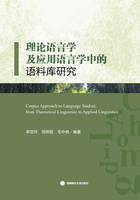
5. Conclusion
This paper is to probe the images of “donkey”in Howard Goldblatt's translation with reference to the collocational behaviour of donkey and donkeys in Red Sorghum and The Republic of Wine. It is a data-driven investigation of the collocates and concordances of donkey(s), and the translation strategies of “donkey”. The results indicate the different recognition for “donkey”between Goldblatt's translations and the original Chinese material. For the translation of “donkey”, Goldblatt adopts induction, omission, foreignization, literal translation and domestication. Also, it reveals that“donkey”embodies less contextual or figurative meaning but more lexical meaning in Goldblatt's translations. The image of “donkey”in his translation is mostly miserable, meek, and smart. In the very limited analysis of Howard Goldblatt's translation of “donkey”, the current study catches an inside thought of his subjectivity.